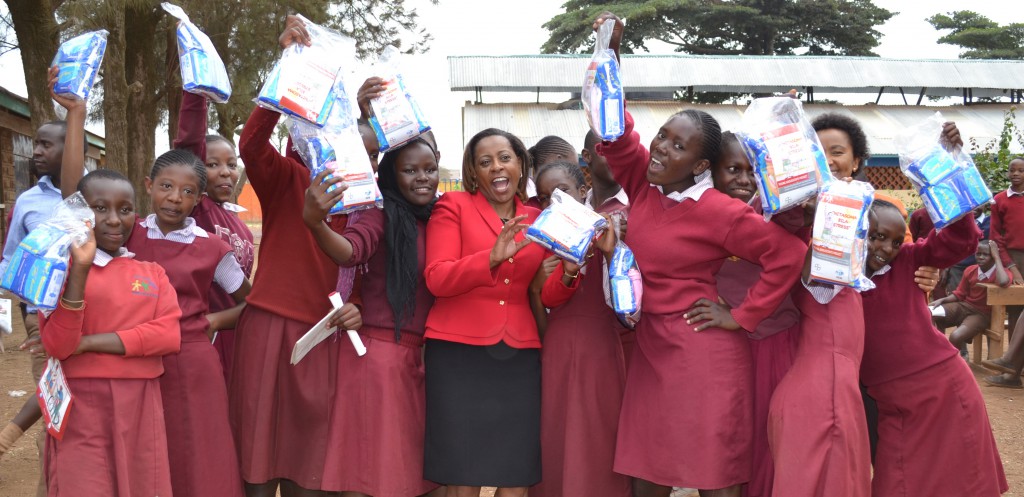Nairobi: Adolescence is a crucial stage of life and one that is challenging for most girls because of its physical and psychological changes. One of the major physiological changes in adolescent girls is menstruation. It is estimated that Kenyan adolescent girls lose an average of 3.5 million learning days per month due to menstruation. This hinders their ability to compete in the classroom, leads to low self-esteem, higher drop-out rates and, in some regions, makes them vulnerable to early marriage.
UNESCO estimates that one in 10 African adolescent girls miss school during menses and eventually drop out because of menstruation-related issues, such as the inaccessibility of affordable sanitary protection, the social taboos related to menstruation, and the culture of silence that surrounds it.
It is against this backdrop that staff from Bayer and DSW took on social responsibilities and donated sanitary packs to girls from Baba Dogo primary school in Ruaraka, Nairobi. The school has more than 1,500 students, most of whom are from poor backgrounds and cant afford basics such as sanitary towels nor panties for holding them in place! The pupils are also affected by myths and misconceptions surrounding menstruation due to the stigma associated with it. In 2011, the Government started a programme to provide sanitary towels in schools, though this is beset my myriad problems including irregular and inadequate supply.
On Tuesday, staff from the two institutions visited the school and donated sanitary packs to more than 200 girls in class seven and eight. The sanitary packs, which were procured through personal staff contributions, contained three panties, three sanitary towel packs and an information brochure on menstruation. A single pack is enough to see a girl through a whole school term which covers three months.
To complement the staff efforts, Bayer HealthCare through its Nairobi office renovated the ablution block which had been in deplorable state, meaning girls dint have a good environment for sanitary towel change and carrying out their daily ablution. Speaking during the event, the Bayer Contry Head in Kenya Rolando Satzke noted that it is important to give girls every chance to perform well in school. This includes taking care of their sanitary hygiene and ensuring they don’t drop out of school due to lack of sanitary towels or lack of proper hygiene. Echoing his sentiments, the school deputy headmistress Ms. Grace Kamani acknowledged that a number of girls usually miss school at certain times of the month. Though many don’t come out openly to admit why they miss school, close interaction with them has enabled her to deduce when this is as a result of heavy menstrual flow days.
Speaking at the same event, DSW Kenya Country Director George Kamau noted that keeping girls in school has been proven to make girls prevent early childbirth. It also helps girls have better planned families in future as well as securing better economic and social security. He pointed out that Bayer and DSW are implementing a Young Adolescents project in Kilifi that aims at keeping girls in school, but that staff had decided to undertake a similar venture on their own volition and using their own finances.
During the event, Bayer handed over the refurbished ablution block as well as promised to employ two caretakers for one year to maintain the facilities and help the pupils on good hygiene practices. DSW promised to provide the pupils with information on good hygiene and reproductive health information (including menstruation) through its Youth-to-Youth network.










